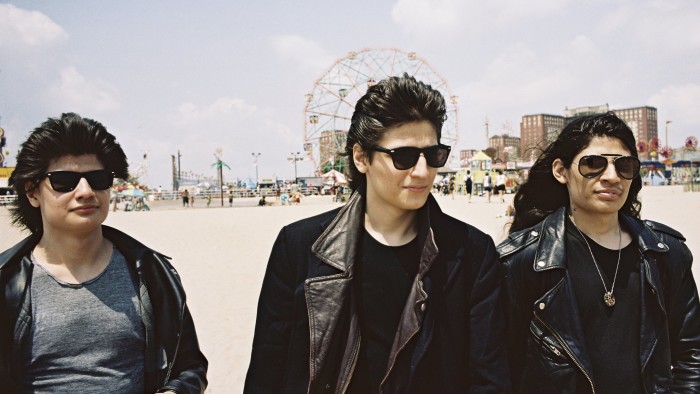The Wolfpack — film review

Simply sign up to the Life & Arts myFT Digest -- delivered directly to your inbox.
At the start of The Wolfpack, the new documentary by director Crystal Moselle, a gaggle of long-haired teenage boys in matching suits flawlessly re-enact a scene from Quentin Tarantino’s Reservoir Dogs. It’s a sweet and funny moment — which of us nerds hasn’t overdone the movie quotes? Only as the scene goes on and the kids nail every cadence does the mood grow uneasy: might they know their lines a little too well?
So begins a remarkable New York story, one made with a pinch of tabloid exposé and another of sociological experiment. The boys, six in total, are the Angulo brothers, and their childhoods have been spent confined to a small public housing apartment in Delancey Street, lower Manhattan. Their jailer has been their father, a would-be rock star from Peru, less a parent than a cult leader to them and their mother, a Midwest hippie charged with homeschooling the kids.
But a different education came with the vast trove of movies that were allowed into the home, thousands of dusty video tapes and DVDs connecting the lost tribe to the world. Soon, the re-enactments began, obsessive mock-ups of Tarantino and Scorsese. “It makes me feel like I’m living, sort of,” says the most forthright brother, Mukunda. Moselle’s timing was inspired: she chanced on the brothers a week after Mukunda successfully broke out from the apartment and the others joined him in seizing the keys to the front door. Made over the next four years, The Wolfpack is essentially the video diary of a revolution.
Still, all but one of the boys stayed living in the apartment, and our time is mostly spent there amid the felt-tip replicas of movie posters. Moselle’s tactic is to take herself out of the picture, and go big on close-up intimacy — what glares out is the bashful charm of the Angulos, shockingly undamaged, on screen at least.
Of course, the future is another country; you wonder about a catch-up seven years from now, of the kind Michael Apted pioneered with his British TV series Up. But for now, The Wolfpack is a story only made possible by its own happy ending. Not only has their father’s spell been broken, the movies themselves have delivered an exquisite poetic justice: the man who longed to be a star, wholly outshone by his sons.

Comments